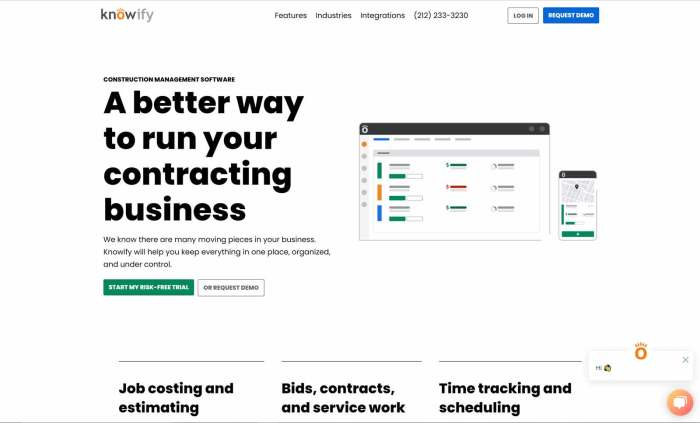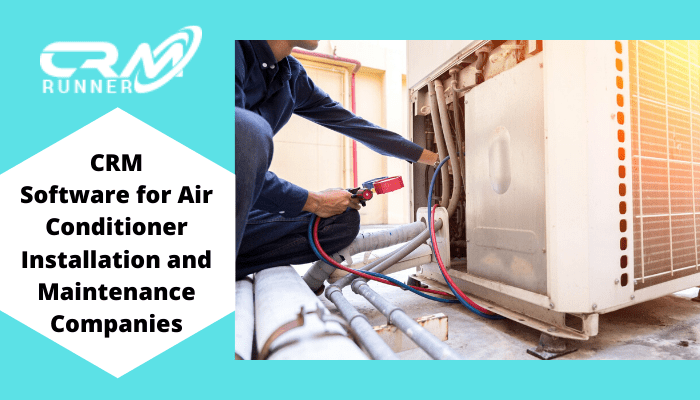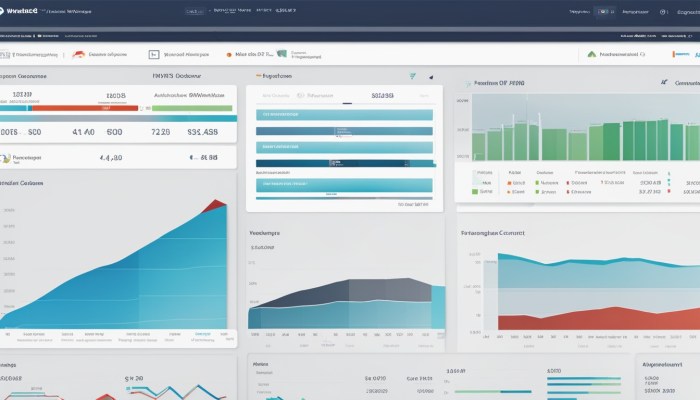Crm software for hvac – The HVAC industry is a demanding landscape, requiring efficient operations, strong customer relationships, and meticulous record-keeping. In today’s competitive market, leveraging technology is no longer a luxury but a necessity. Customer Relationship Management (CRM) software specifically designed for HVAC businesses offers a powerful solution to streamline operations, improve customer satisfaction, and ultimately boost profitability. This comprehensive guide delves into the world of HVAC CRM software, exploring its key features, benefits, and how it can transform your business.
Understanding the Needs of HVAC Businesses
HVAC businesses face unique challenges. From managing complex service schedules and technician dispatch to tracking inventory and invoicing customers, the operational demands are significant. Traditional methods often involve cumbersome spreadsheets, fragmented communication, and inefficient workflows. This leads to:
- Missed appointments and scheduling conflicts: Difficulty coordinating technician availability and customer appointments.
- Poor customer communication: Delays in responding to inquiries, missed follow-ups, and lack of personalized service.
- Inefficient inventory management: Difficulty tracking parts, supplies, and equipment, leading to stockouts and delays.
- Slow invoicing and payment processing: Manual processes leading to late payments and cash flow issues.
- Difficulty tracking customer history and preferences: Lack of centralized information on past services, equipment, and customer interactions.
HVAC CRM software addresses these challenges by providing a centralized platform to manage all aspects of the business, from customer interactions to operational efficiency.
Key Features of HVAC CRM Software
Effective HVAC CRM software offers a range of features tailored to the specific needs of the industry. These typically include:

Source: optimoroute.com
Customer Management:
- Centralized customer database: Store all customer information, including contact details, service history, equipment details, and communication logs in one place.
- Automated communication: Send automated appointment reminders, follow-up emails, and marketing campaigns.
- Customer segmentation: Group customers based on various criteria (e.g., equipment type, service history) for targeted marketing and communication.
- Customer satisfaction surveys: Gather feedback to improve service quality and identify areas for improvement.
Scheduling and Dispatch:
- Real-time scheduling: View technician availability and schedule appointments efficiently, minimizing conflicts and travel time.
- Automated dispatch: Assign jobs to technicians based on location, skills, and availability.
- GPS tracking: Monitor technician location in real-time and provide customers with estimated arrival times.
- Route optimization: Plan efficient routes for technicians to minimize travel time and maximize productivity.
Inventory Management:
- Real-time inventory tracking: Monitor stock levels, track parts usage, and receive alerts when supplies are low.
- Automated ordering: Automatically reorder parts when stock levels fall below a certain threshold.
- Integration with suppliers: Streamline ordering process by directly connecting with suppliers.
Invoicing and Payment Processing:
- Automated invoicing: Generate invoices quickly and accurately, reducing manual effort and errors.
- Online payment processing: Accept payments securely online through various payment gateways.
- Automated payment reminders: Send automated reminders to customers with outstanding payments.
- Reporting and analytics: Track key financial metrics, such as revenue, expenses, and profitability.
Reporting and Analytics:, Crm software for hvac
- Customizable reports: Generate reports on various metrics, such as customer satisfaction, technician performance, and revenue.
- Data visualization: Visualize key data points through charts and graphs for easy interpretation.
- Performance tracking: Monitor key performance indicators (KPIs) to identify areas for improvement.
Benefits of Using HVAC CRM Software
Implementing HVAC CRM software offers numerous benefits, leading to improved efficiency, increased revenue, and enhanced customer satisfaction. These include:
- Improved customer satisfaction: Faster response times, personalized service, and proactive communication lead to happier customers.
- Increased efficiency: Streamlined workflows, automated tasks, and reduced manual effort free up time for more strategic activities.
- Reduced operational costs: Minimized errors, improved inventory management, and efficient scheduling reduce overall costs.
- Improved technician productivity: Optimized routes, automated dispatch, and real-time communication enhance technician efficiency.
- Better data-driven decision making: Access to real-time data and insightful reports enables informed business decisions.
- Enhanced marketing and sales: Targeted marketing campaigns and improved customer segmentation boost sales.
- Stronger customer relationships: Personalized communication and proactive service build lasting customer relationships.
Choosing the Right HVAC CRM Software
Selecting the appropriate CRM software involves careful consideration of several factors:
- Business size and needs: Choose a system that scales with your business growth and addresses your specific requirements.
- Features and functionality: Ensure the software offers the essential features discussed above, tailored to HVAC operations.
- Integration capabilities: Look for seamless integration with other business tools, such as accounting software and scheduling apps.
- User-friendliness: The software should be intuitive and easy to use for all team members.
- Cost and pricing model: Consider the initial investment and ongoing costs, choosing a pricing model that aligns with your budget.
- Customer support and training: Ensure the vendor provides adequate support and training to ensure successful implementation.
Frequently Asked Questions (FAQ): Crm Software For Hvac
- Q: What is the average cost of HVAC CRM software? A: The cost varies significantly depending on the features, vendor, and pricing model. Expect to pay anywhere from a few hundred dollars per month to several thousand dollars per year.
- Q: How long does it take to implement HVAC CRM software? A: Implementation time varies depending on the complexity of the system and the size of your business. It can range from a few weeks to several months.
- Q: Can HVAC CRM software integrate with my existing accounting software? A: Many HVAC CRM systems offer integration with popular accounting software packages. Check the software’s compatibility before purchasing.
- Q: What are the key metrics to track with HVAC CRM software? A: Key metrics include customer satisfaction, technician productivity, revenue, expenses, and appointment scheduling efficiency.
- Q: Does HVAC CRM software require specialized technical skills to use? A: Most modern CRM systems are designed to be user-friendly, requiring minimal technical expertise. However, training is often provided by the vendor.
Conclusion
Investing in the right HVAC CRM software is a strategic decision that can significantly impact your business’s success. By streamlining operations, enhancing customer relationships, and providing valuable data-driven insights, a well-chosen CRM system can boost efficiency, profitability, and overall growth. Take the time to research different options, considering your specific needs and budget, to find the perfect solution for your HVAC business.
Call to Action
Ready to transform your HVAC business with the power of CRM? Contact us today for a free consultation and discover how we can help you choose and implement the perfect CRM solution.
Popular Questions
What are the key features to look for in HVAC CRM software?
Essential features include contact management, service scheduling, job dispatch, inventory tracking, reporting and analytics, and ideally, mobile accessibility.
How much does HVAC CRM software typically cost?
Pricing varies widely depending on features, scalability, and vendor. Expect monthly subscription fees ranging from basic packages to more comprehensive enterprise solutions.
Can CRM software integrate with my existing business systems?

Source: crmrunner.com
Many CRM systems offer integrations with accounting software, scheduling platforms, and other business tools. Check for API compatibility to ensure seamless data flow.
How long does it take to implement a new CRM system?

Source: hvacsoftwarefaqs.com
Implementation time varies depending on the complexity of the system and the size of your business. Allow sufficient time for data migration, user training, and system testing.
